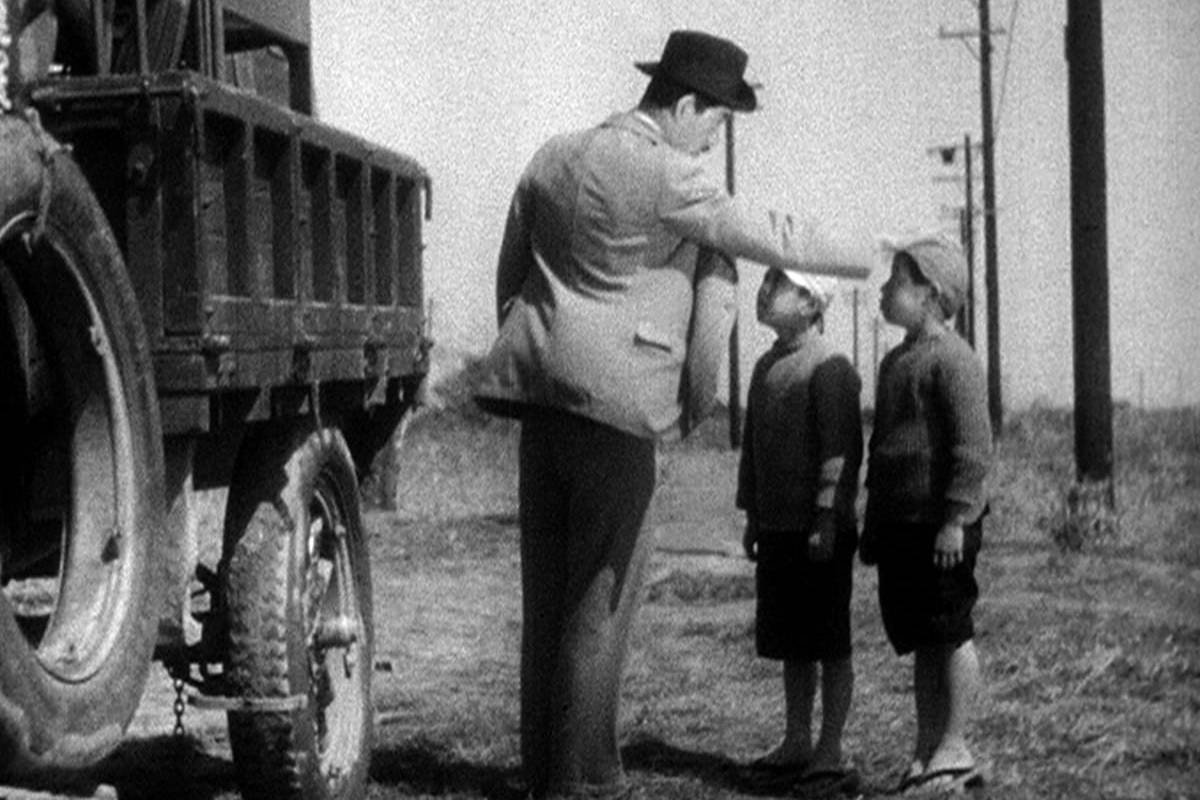

I Was Born, But…
Otona no miru ehon – Umarete wa mita keredo
Regia: Yasujirô Ozu; sceneggiatura: Akira Fushimi, Geibei Ibushiya; interpreti: Tatsuo Saitō, Tomio Aoki, Mitsuko Yoshikawa, Hideo Sugawara; produzione: Shochiku; distribuzione: Shochiku.
Presentato in selezione ufficiale al Locarno International Film Festival 1979.
Giappone, 1932, 91’. Muto con didascalie sottotitolate in italiano.
SINOSSI
La famiglia Yoshi si trasferisce nei sobborghi di Tokyo, dove il padre, Kennosuke, lavora per il severo Iwasaki. I suoi giovani pestiferi figli, Keiji e Ryoichi, evitano di andare a scuola a causa delle minacce dei bulli del quartiere. Dopo un intervento del loro insegnante, i ragazzi tornano in classe, e, con l’aiuto di un delivery boy, Kozou, trovano un modo per affrontare i bulli e guadagnare il rispetto dei compagni. La storia esplora le sfide quotidiane della famiglia, evidenziando le discrepanze tra l’immagine pubblica e privata del padre. Con delicatezza e umorismo, si delinea un ritratto delle dinamiche familiari e delle difficoltà di chi si ritrova a dover crescere in un ambiente sociale complesso.
BIO REGISTA
Yasujiro Ozu (1903-1963) è stato un cineasta giapponese, tra i più grandi ed apprezzati del ventesimo secolo. Debuttò alla regia nel 1927 con La spada della penitenza (Zange no yaiba) e raggiunse la fama dopo la Seconda Guerra Mondiale, con titoli come Tarda primavera (Banshun, 1949) e Viaggio a Tokyo (Tōkyō monogatari, 1953). Noto per il suo stile distintivo caratterizzato da inquadrature fisse e basse, e per la sua grande umanità nel trattare temi come i rapporti familiari, è considerato uno dei grandi maestri del cinema internazionale. Il suo lavoro ha ispirato innumerevoli cineasti e continua a essere studiato e apprezzato a livello mondiale.
PLOT
The Yoshi family moves to the suburbs of Tokyo, where the father, Kennosuke, works for the strict Iwasaki. His mischievous young sons, Keiji and Ryoichi, avoid going to school because of threats from the neighbourhood bullies. After an intervention by their teacher, the boys return to class and, with the help of a delivery boy, Kozou, find a way to confront the bullies and gain the respect of their classmates. The story explores the daily challenges of the family, highlighting the discrepancies between the public and private image of the father. With subtlety and humour, the film outlines a portrait of family dynamics and the difficulties of growing up in a complex social environment.
DIRECTOR’S BIO
Yasujiro Ozu (1903-1963) was a Japanese filmmaker, one of the greatest and most appreciated of the 20th century. He made his directorial debut in 1927 with Sword of Penitence (Zange no yaiba) and achieved fame after World War II with titles such as Late Spring (Banshun, 1949) and Tokyo Story (Tōkyō monogatari, 1953). Known for his distinctive style characterised by low, fixed shots and his great humanity in dealing with themes such as family relationships, he is considered one of the great masters of international cinema. His work has inspired countless filmmakers and continues to be studied and appreciated worldwide.